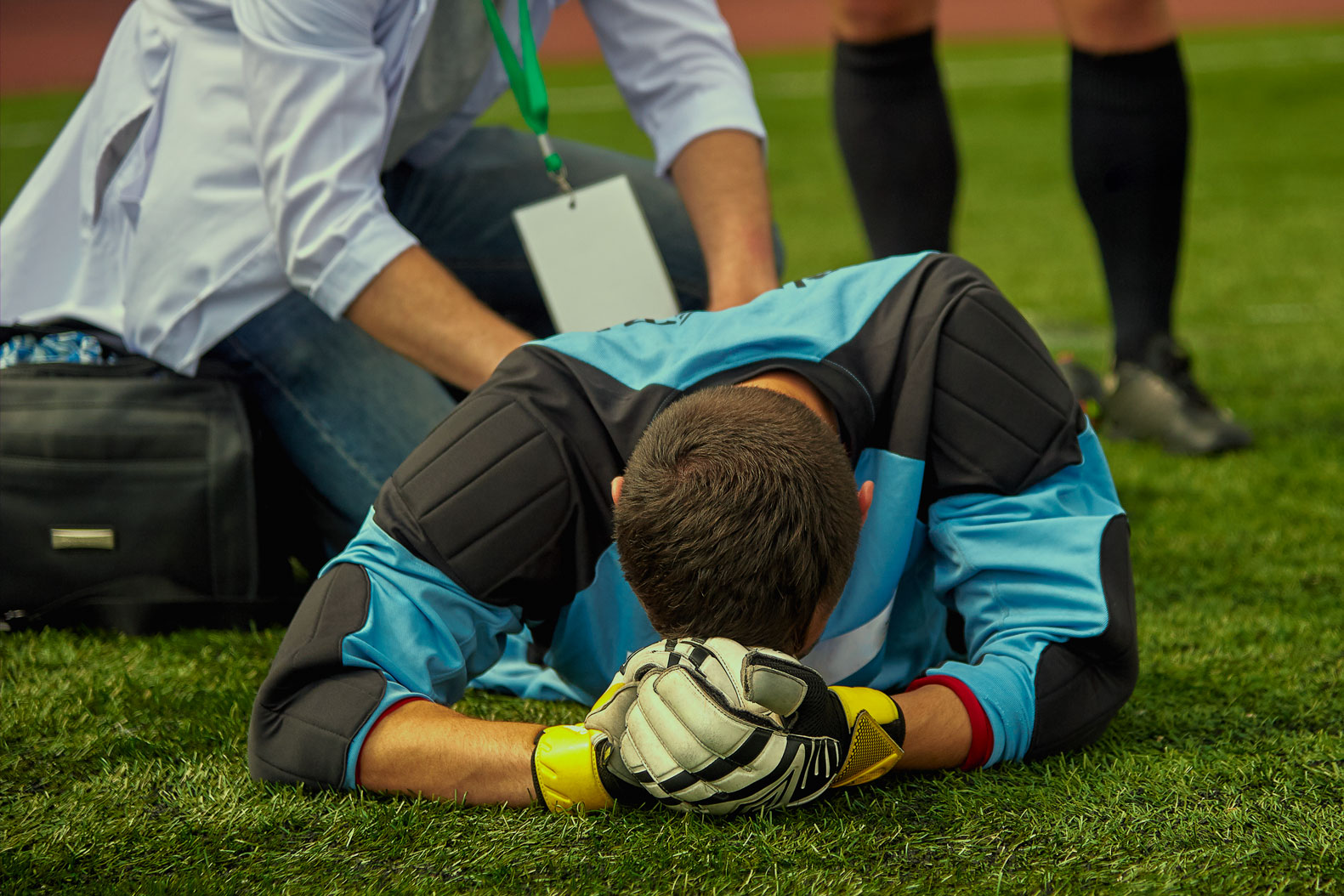
Improving reflexes: training for unpredictable shots
Antoine Roex, Keeper In Motion – 20 March 2025
The ability to react quickly to a sudden shot is a decisive factor for a goalkeeper determined to protect their goal. Unpredictable shot simulations provide an effective way to enhance reflexes and sharpen concentration by placing athletes in scenarios that closely resemble real match conditions. Optimising reaction speed plays a crucial role in overall performance and helps develop a strong mindset to handle high-pressure situations.
The importance of reflexes in performance
A goalkeeper capable of reacting swiftly increases their chances of making decisive saves. The fractions of a second gained when reading a shot’s trajectory can make all the difference, especially when an opponent surprises them with a ball coming from an unusual angle. Experienced athletes often emphasise the importance of a short response time in maintaining confidence, as a spectacular save reinforces their sense of control over the game. Regular reflex training also strengthens emotional stability under pressure, reducing awkward instinctive reactions. Targeted drills focusing on visual perception and decision-making speed help prepare goalkeepers for extreme conditions. Mental visualisation exercises further aid in anticipating scenarios, enhancing awareness on the pitch. Professionals consider reflexes as essential as technical skills or physical attributes. Developing this ability is a key advantage in staying competitive and standing out in crucial moments.
The role of unpredictability in shot training
Goalkeepers can improve their ability to adapt by facing unexpected situations in training. Specialist coaches introduce unconventional movements and feints to disrupt learned reflexes, as repeating identical actions tends to create routine responses. Unpredictable shot simulations force athletes to quickly analyse the ball’s position and the opponent’s body movements without relying on a predictable pattern. The uncertainty of when the shot will be taken maintains a state of constant alertness, essential for executing instinctive saves. Over time, confidence grows as goalkeepers become accustomed to handling unpredictable scenarios with composure. The element of surprise is no longer seen as a disruptive factor but rather as a natural component of dynamic training sessions. Exercises can be tailored to different skill levels, ensuring that the challenge remains appropriate for each athlete’s abilities. By fostering an environment of uncertainty, goalkeepers can significantly improve their reflexes and spontaneous reactions.
Training techniques to boost reflex speed
Drills involving multiple shots from various angles help develop rapid hand-eye coordination. Flashing light devices enhance visual perception and require continuous adaptation to changing signals. Coaches can vary shooting distances and ball speeds to prevent goalkeepers from becoming too accustomed to specific shot types. Training on smaller areas accelerates decision-making, as reaction time must be nearly instantaneous to cover a reduced angle. Proprioception exercises, such as balancing on unstable surfaces, improve stability and body control. Some professionals also use irregularly shaped balls to disrupt trajectory reading, further challenging reflexes. Mental training through concentration exercises improves clarity and decision-making under high-intensity conditions. Finally, consistent training in ever-changing scenarios enhances muscle memory, preparing goalkeepers to react effectively in matches.
The psychological impact and long-term development
Adapting to unpredictable shots goes beyond muscle development and coordination. The mental aspect strengthens as goalkeepers learn to stay calm in seemingly chaotic situations. Effective stress management optimises reflexes and encourages rational decision-making, which often makes the difference in critical moments. On a psychological level, confidence builds progressively with visible results—every successful save against an unexpected shot reinforces self-belief. Goalkeepers become bolder, stepping out of their comfort zone to anticipate opponent movements. The benefits extend to recovery after mistakes, as failure is recognised as part of the learning process. Training reflexes while incorporating mental conditioning ensures continuous progress, essential for reaching an elite level. Experienced goalkeepers understand that high-level training integrates technical, physical, and mental elements, fostering long-term improvement.
Conclusion
Training in an environment where unpredictability dictates the session structure significantly elevates a goalkeeper’s reflex standards. Unpredictable shot drills, combined with complementary techniques focusing on perception and mental resilience, shape athletes who can confidently respond to sudden actions. Though demanding, this approach delivers remarkable results in agility and confidence. The ability to adapt to even the slightest variations is essential for excelling on the pitch, as performance is the outcome of well-structured technical and psychological preparation. Continuous progress, grounded in anticipation and perseverance, becomes the key to success in handling all phases of the game.
References :
